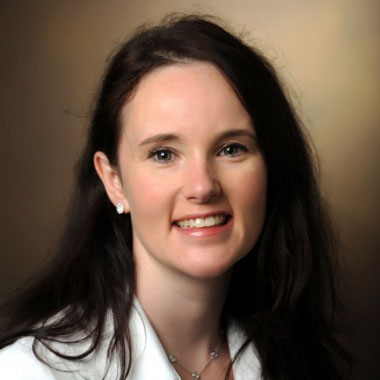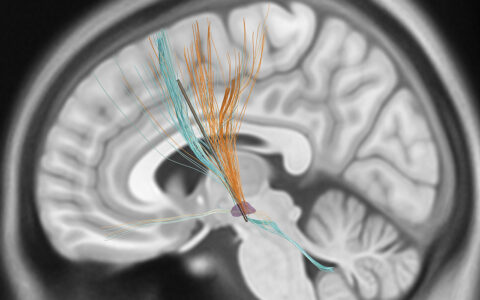Multimorbidity is endemic among older adults, surpassing any single condition in prevalence among elderly patients over age 80. For many older adults with cardiovascular disease (CVD), significant multimorbidity compounds risks and consequences of their CVD treatment.
“Therapeutic competition is a common problem,” said Susan Bell, M.D., a geriatric cardiologist at Vanderbilt University Medical Center and assistant professor in the Vanderbilt Center for Quality Aging. “For example, an older adult with heart failure may have gout or chronic kidney disease, so introducing diuretics to eliminate fluids could worsen those comorbidities. In general, as patients age and their multimorbidities increase, the variety of contraindications or warnings that must be considered when deciding treatment will increase as well.”
Bell is on a steering committee for a series of national workshops on critical issues in elderly care, funded by the National Institutes on Aging (NIA) and organized by the American College of Cardiology (ACC) and American Geriatrics Society (AGS). In 2015, the group held its first workshop, which focused on “Multimorbidity in Older Adults with CV Disease.” Along with generating a comprehensive analysis of the current CVD therapeutic paradigm from the standpoint of older patients with multimorbidity, the session identified next steps to advance research and new clinical approaches.
Limitations of Disease-specific CVD Treatment
As reported in the Journal of the American College of Cardiology, the NIA/ACC/AGS workshop identified multiple limitations to a single-disease approach to CVD:
- Clinical guidelines based on randomized clinical trials (RCTs) have limited applicability to patients with multimorbidity. Subjects with multimorbidity are often deliberately excluded from RCTs.
- Disease-specific guidelines are often contradictory in patients with multimorbidity. Confusion is higher with discordant comorbid conditions – those not directly related by underlying pathophysiology or similar management concerns.
- Disease-specific guidelines generally target condition-specific goals rather than the broad and interconnected goals that many older patients prioritize (e.g. improved quality of life, increased physical function).
- Disease-specific endpoints used in most RCTs are less aligned with the realities and concerns of older patients with multimorbidity.
“What emerged from the workshop is a strong case against a generic approach to CVD research and treatment across all ages and patient groups.”
“What emerged from the workshop is a strong case against a generic approach to CVD research and treatment across all ages and patient groups,” Bell said. “That approach simply won’t meet the unique needs of older patients with CVD and multimorbidity.”
Developing a Patient-based Approach
The steering committee focused its recommendations for improvement into three strategic areas: research and knowledge gaps, clinical guidelines and implementation and performance measures:
- Research: better study design/enrollment to include older patients with multimorbidity, and to better involve patients’ care priorities, longitudinal outcomes; more meaningful endpoints; improved data collection/utilization of EHRs; improved risk prediction models that incorporate geriatric conditions and concordant/discordant multimorbidities; more studies on current health disparities and barriers excluding older patients with multimorbidity from research.
- Clinical guidelines: new tools/methods to assess patients and their preferences, aid patient decision making, assess health status and quality of life in contexts of multimorbidity and to present trade-offs accompanying care options; evaluation of alternative care models including multidisciplinary care teams, patient-centered medical homes and telemedicine/wearables.
- Implementation and performance measures: new methods/approaches to align care with patient preferences and coordinate care across providers and facilities; better utilization of EHRs/other communication systems for older patients with multimorbidity/geriatric syndromes; improved performance measures to assess quality and value of care.
The published report from the workshop also identifies resources and partner organizations to help advance this new, more patient-based treatment paradigm, including the Patient-Centered Outcomes Research Institute (PCORI), Department of Health and Human Services and the NIH.
Next Steps
At Vanderbilt, Bell is prioritizing practical interventions that will impact care for older CVD patients immediately, while also facilitating relevant research. “We already know that multimorbidity is associated with poorer health outcomes. There are tools available now, like the Vulnerable Elders Survey, or VES-13, that can be very effective for assessing older patients and their needs as part of medical admission,” said Bell.
Bell has monitored use of the VES-13 survey in older Vanderbilt patients with acute coronary syndrome and heart failure, as part of the Vanderbilt Inpatient Cohort Study. She found the majority of CVD patients who completed the survey to be vulnerable to functional decline associated with high clinical resource use. “We need to further track the information generated by those tools – do they actually change behaviors and outcomes?” Bell said.
More broadly, Bell believes transforming the therapeutic paradigm for older patients with CVD will require changing both cardiology education and clinical practice: “We’re working with partners, including the ACC, to integrate geriatric principles into training as well as continuing education for cardiologists. In clinical practice, we need to grow the subspeciality of geriatric cardiology, which is occurring, and we need to change how physicians care for older patients in their own areas,” said Bell.





